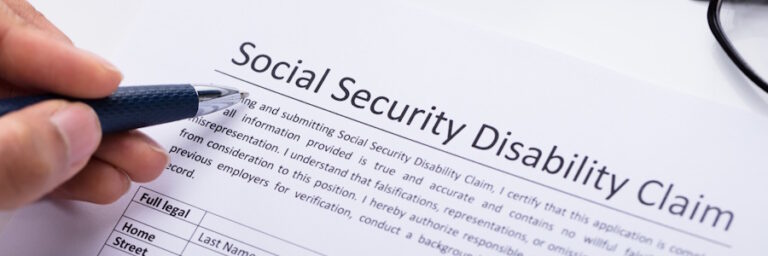
When faced with a disability, the process of obtaining benefits can be overwhelming. However, for many individuals, the Social Security Administration’s (SSA) Presumptive Disability program offers a streamlined path to support. This expedited process is designed for those with specific conditions, helping them receive necessary benefits more quickly.
In this article, we will explain the different types of presumptive disabilities and how you may be eligible to receive Supplemental Security Income (SSI) benefits right away under their expedited payments program.
What Is Presumptive Disability?
A presumptive disability is a disabling condition that allows you to receive expedited payments from the Social Security Administration under the SSI program. If you have a presumptive disability, you will receive disability payments quickly while you wait for the SSA to evaluate your full SSI application and make a final decision on your claim.
Types of Presumptive Disabilities
The types of conditions that qualify for presumptive disability are typically those that are clearly severe and likely to meet the SSA’s disability criteria. You may be eligible to receive SSI benefits right away if you have one of the following severe medical conditions:
- Amputation of a leg at the hip
- Total deafness with no sound perception in either ear
- Total blindness with no light perception in either eye
- Bed confinement or immobility without a wheelchair, walker, or crutches due to a long-standing condition (excluding recent accident and recent surgery)
- A stroke that occurred more than three months in the past and continued difficulty in walking or using a hand or an arm
- Cerebral palsy, muscular dystrophy, or muscular atrophy and marked difficulty in walking (for example, requires the use of braces), speaking, or coordination of the hands or arms
- Down syndrome
- Symptomatic human immunodeficiency virus (HIV) infection or acquired immunodeficiency syndrome (AIDS)
- Terminal illness with a life expectancy of six months or less, confirmed by a physician or knowledgeable hospice official
- Spinal cord injury producing an inability to ambulate without the use of a walker or bilateral hand-held assistive devices for more than two weeks
- End-stage renal disease (ESRD) requiring chronic dialysis
- Amyotrophic lateral sclerosis (ALS), also known as Lou Gehrig’s disease
Can Presumptive Disability Help You Get Benefits Quickly?
Having a presumptive disability can speed up the process of getting Social Security benefits, even if they haven’t been formally approved as disabled by the SSA. Normally, the SSI disability application process can take approximately four to six months or longer. With a presumptive disability, the SSA will start to pay you benefits immediately while you wait for a final determination of your application. While you receive presumptive disability payments, the SSA will fully evaluate your claim.
It’s important to note that receiving presumptive disability benefits doesn’t guarantee that you’ll be found disabled for Social Security purposes. If the SSA ultimately denies your disability claim, you do not have to pay back the benefits you received under the presumptive disability status.
The Application Process for Presumptive Disability Benefits
Here are the steps in applying for presumptive disability and what you can expect at each stage of the process.
Determine eligibility
The first step is determining if you’re eligible for presumptive disability. Presumptive disability benefits are only available to disabled individuals who file for SSI benefits. SSI is a means-tested program that you may be eligible for if your income is limited, and you have less than $2,000 in countable resources as a single person or $3,000 in countable resources as a couple.
Determine eligibility
The SSA will grant or deny presumptive disability benefits based upon the evidence available at the time and the likelihood that your disability claim will be ultimately approved. Presumptive disability benefits will be paid if the evidence reflects a high degree of probability that your impairment meets the SSA’s definition of disability or blindness. This decision can be made by your local Social Security office or at the Disability Determination Services (DDS) office that reviews your medical records to determine disability. Therefore, it is important to gather necessary documentation such as medical records, work history, and proof of assets and income. These documents will be used to verify your disability and financial situation.
In some cases of presumptive disability, you may need to provide additional documentation.
- In cases of HIV infection or AIDS, you must submit SSA Form 4814-F5 or SSA-4815-F6 Form as needed.
- In cases of terminal Illness, you must provide a statement from a physician or knowledgeable hospice official who confirms that you receive hospice services because of a terminal illness.
- In cases of end-stage renal disease requiring dialysis, you must submit a completed End-Stage Renal Disease Medical Evidence Report-Medicare Entitlement and/or Patient Registration.
Submit application
You may submit your application online, by mail, or in person. Currently, SSI applications can only be submitted online if you are a first-time applicant between the ages of 18 and 65 who has never been married and you are concurrently applying for Social Security benefits and SSI. When you submit your application online, you should note a request to receive presumptive disability benefits in the remarks section. If you do not meet this criteria, you should file your SSI application by mail or in person. If you apply for benefits in person, you should tell the analyst handling your claim that you would like to request to receive presumptive disability benefits.
Wait for review
After you submit your application, your case will be sent to your local SSA office for processing. Once your application is received by the local Social Security field office, it goes through an initial review. This process determines whether your case meets the basic non-medical eligibility requirements
Begin receiving benefits
If the SSA determines that you meet the basic non-medical eligibility requirements and there is enough evidence to determine presumptive disability, you will begin to receive presumptive disability benefits. Presumptive disability benefits start the month you are determined to be presumptively disabled and will continue for six months.
Receive a decision on disability
If you receive presumptive disability benefits, the SSA will continue to evaluate your claim for SSI disability benefits. The SSA will send the application to a state agency called Disability Determination Services, which reviews your medical records and then makes a decision regarding your medical eligibility. If your application is approved, you will continue to receive disability benefits. If the application is denied, your presumptive disability benefits will end, and you may proceed with an appeals process.
If you need expert guidance to ensure your presumptive disability application is successful, the Social Security disability specialists at LaPorte Law Firm can provide invaluable support.
Contact us today to schedule a consultation with our experienced attorneys. We’ll help you understand your rights, gather the necessary documentation, and guide you through every step of the application process.
FAQs
A presumptive disability is a type of disability that has a high likelihood of meeting the SSA’s definition of disability. This is a severe impairment that prevents you from being able to do any work that is expected to result in death, or which has lasted or can be expected to last for a period of not less than 12 months. For a full list of presumptive disabilities, see the SSA’s Presumptive Disability List.
Presumptive disability provides temporary monetary benefits for disabled individuals who are awaiting a final determination on their SSI disability claim. Presumptive disability benefits last for up to six months. If you are denied disability benefits because you have been found to be not disabled, you do not have to pay back any presumptive disability benefits.
Medical documentation of your disability is the most important documentation to provide when applying for Presumptive Disability. It is important to provide the biopsy, MRI, EKG, blood test, or doctor’s note that confirms your disability diagnosis.
If you are not awarded presumptive disability benefits, the SSA will continue to evaluate your claim to determine your eligibility for SSI disability benefits. You cannot file an appeal of the denial of presumptive disability benefits. If your claim for SSI disability benefits is denied, you can file an appeal. You have a right to appeal within 60 days of the initial application denial and to appeal again to an administrative law judge if your application is denied.














